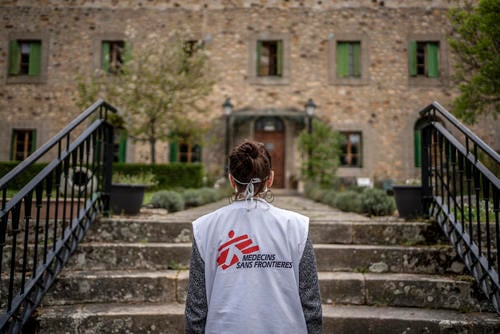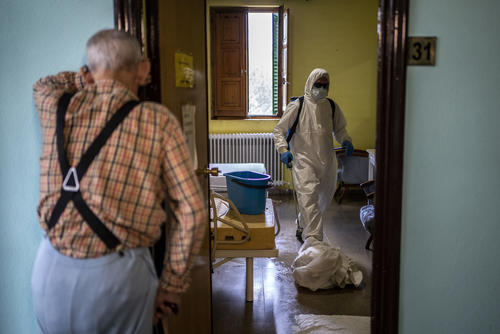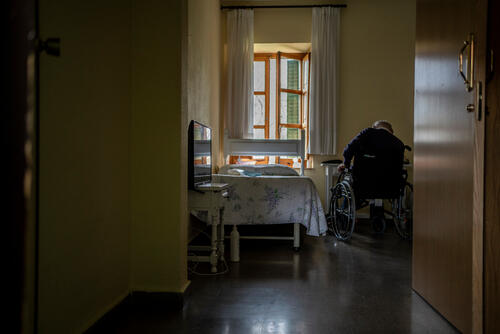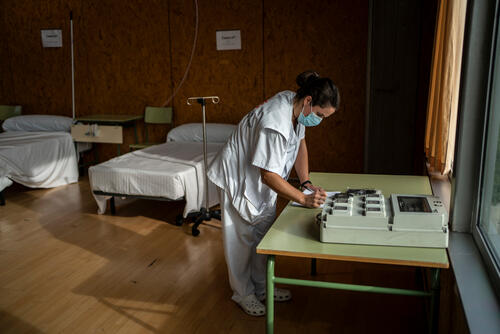- After two months of activities, MSF has ended our response to the COVID-19 pandemic in Spain.
- We worked on ensuring decent care for elderly people in care homes; this care for the elderly must continue.
- MSF calls on the Spanish authorities to invest in the resources needed to control the pandemic in the country.
Barcelona - More than two months after activating teams to respond to the COVID-19 pandemic in Spain, Médecins Sans Frontières (MSF) is ending our direct intervention in the country, having completed our mission to support the public health system to overcome the most critical period of the outbreak. We continue to respond to the pandemic and will now focus our efforts primarily in contexts with fragile health systems and with vulnerable populations threatened by this new disease, as well as by other emergencies.
The end of our activities comes amidst a de-escalation of the pandemic in the country and that the Spanish health system has now managed to overcome the most acute phase of COVID-19, when previously it was on the verge of collapse.
MSF reiterates our call to the authorities to maintain vigilance and invest the necessary resources to achieve effective control of the epidemic and avoid new outbreaks. After our direct experience in this emergency, MSF considers it essential that the needs of the elderly in care homes be responded to, with the utmost care and dignity, and that the protection of frontline medical and non-medical personnel, including their emotional health, be made a priority.
“Everyone is now aware of what this pandemic means for the most vulnerable sections of the population, such as the elderly in care homes,” said David Noguera, president of MSF Spain. “It would be unacceptable that our system is not now more prepared to avoid the recurrence of tragic situations and deaths, or that it does not work to reduce the serious impact on the physical and mental health of the residents in these homes, where 260,000 elderly people live and more than 19,000 have died. The dignity of the most vulnerable people in our society must be our common goal.”
It would be unacceptable that our system is not now more prepared to avoid the recurrence of tragic situations and deaths... in these homes.Dr David Noguera, president MSF Spain
One of the main elements of MSF's intervention has been the provision of technical advice and training for care home staff, in an effort to improve the care received by the residents of these centres. In 12 autonomous communities, MSF has supported more than 500 care homes, through face-to-face and remote activities, helping thousands of professionals to carry out their tasks.
We have also given free, personalised and confidential advice and set up a specialised website (https://msfcovid19.org/) for health administrators, supervisory and training teams, and medical and care staff looking after people affected by COVID-19. This website, which will remain active in the coming months, offers documents and videos on protocols, patient flow in care homes to avoid infections, contact tracing, infection prevention and control in hospitals and primary care centres, and the use of personal protective equipment (PPE). We will continue to provide specific advice when required.
In the first weeks of the emergency, we made ourselves available to the authorities and health staff, and helped to increase the capacity of hospitals by setting up temporary hospitalisation units located inside or outside hospital facilities, for example in sports halls, to serve COVID-19 patients. In these makeshift units, MSF has directly advised healthcare staff, focusing, among other things, on infection prevention and control.
Our teams have provided support in planning 30 and setting up 4 hospitalisation units in Madrid and Barcelona, with a total of 360 beds, to help decongest emergency departments during the most critical moments in the most affected areas, such as the Community of Madrid and in Catalonia.
“We are doctors, nurses, logisticians and specialists in emergencies, and it has been a privilege to work in Spain and use our experience to support medical and care staff who are giving their all in this very adverse situation,” said Dr Paula Farias, coordinator of MSF’s COVID-19 response in the Madrid area.






